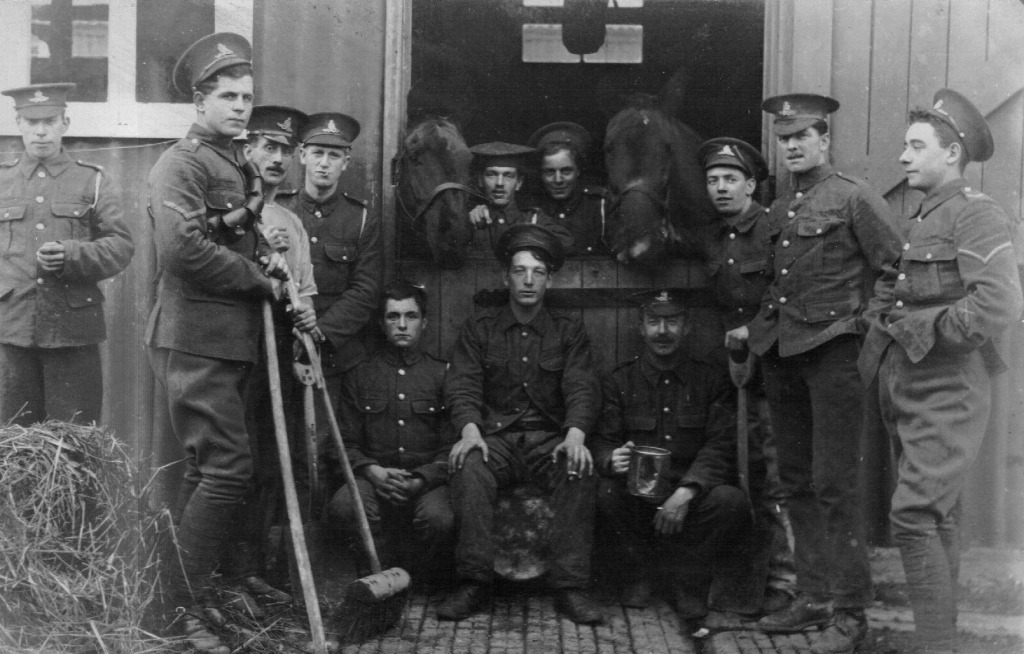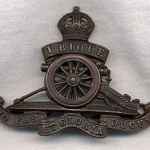30th September 1914
Carrying on from yesterday, which I though was an excellent post (trumpet blowing is fair enough, as I make up about 50% of this blog’s readership), we’re going to look at Frank’s skills. Apart from ladies and beer, of course.


The photograph above shows Frank outside a stable with a bunch of artillery men. I’ve always assumed these other men were Dorsets too. I’ve looked at this photos many times but my non-military mind completely failed to spot their cap badges were different. Their cap badges link them to the Royal Artillery. It’s hard to narrow this down to the Royal Field Artillery, Royal Horse Artillery or Royal Garrison Artillery. However, much discussion is to be found here as to whether or not the men have ball buttons (Royal Horse Artillery) or plain buttons (Royal Field Artillery).
The photograph was taken between January 1912, when Frank was made a Lance Corporal (the single stripe on his left arm), and the beginning of the war. It’s more likely that this is when he’s in Aldershot as Royal Artillery units were stationed there in 1912. The Dorsets left for Belfast on 9th January 1913.
If you look closely at his left hand sleeve, towards the cuff, there’s another badge there in the form of a pair of crossed rifles. This is the marksman “skill-at-arms” badge, awarded when a soldier had scored 130 points or more in an annual “musketry” test. 50 rounds were fired at targets from different positions. 4 points were scored for a bull, 3 for an inner and 2 for an outer, making the maximum score 200 points. Impressive stuff, but the badge was not as uncommon as you would think. Many regiments really went to town on musketry training so a quite a few of their men had these badges. If you like statistics then fill your boots with this thread on the Great War Forum.
The Dorsets’ diary reports a quiet day and night, with only the occasional high explosive shell passing over them into Sermoise across the Aisne. The weather had cheered up a bit and the Dorsets were beginning to enjoy something approaching a frontline routine.